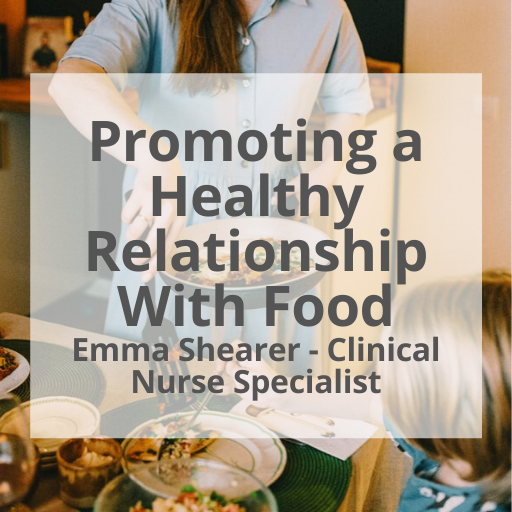4th Mar 2020
Promoting a Healthy Relationship With Food

Eating disorders are on the rise, with an estimated 1.25 million people living with one in the UK right now.
Whether you’re a parent, carer or someone working within a care setting, a key concern is often ensuring that those we care for are receiving adequate nutrition and enjoying a healthy, happy life. This preoccupation with what we eat starts young, and for many mothers, it may even begin whilst our child is still in utero. Many mums-to-be are keen to eat the best diet for their unborn child, with the next concern being breast or bottle.
Since I’ve taken on the ED role, I’ve noticed that as a society, we obsess about food, diet and our body image. It has truly become a national obsession! We are often bombarded with social media telling us what is and isn’t ok, often with polarising extremes of diet and body image. Personally, I have become increasingly aware of how I talk about food, calories, exercise and my appearance – much to my benefit, as I am now far less stressed about it.
The worry over making sure our younger generation is not overweight has subsequently led to a preoccupation with ensuring children are healthy. The question is, when does this focus on healthy become too much and end up leading to a set of unhealthy beliefs being unconsciously embedded into children’s psych?
Understanding how to promote a child’s healthy relationship with food is increasingly important. To discover tips and tricks for promoting this balanced view of food, keep reading:
Eating together as a family
From day one, try to eat together as a family, even if that means tolerating the mess that comes along with eating with a toddler! Talk about where the food has come from, how much you are enjoying it and generally make it an enjoyable, social occasion. Children have an amazing ability to extract nutrition from food and still survive. Allow them to eat what they can, without placing emphasis on clearing their plate, and encourage the independence to feed themselves as soon as they are able.
Teenagers are naturally a lot more erratic, and they may survive on a succession of snacks based around their busy schedule of socialising and studying. However, despite this, do try to encourage them to join in food prep and cooking, and subsequently sit and eat the meal together if possible.
Will my dieting influence my child?
Eating disorders often manifest themselves during puberty, therefore it is important to act as a positive role model for your child. Steer away from talking about going on a diet and your negative feelings regarding body image, because this may have a lasting impact on your child. Specifically, try not to allow concerns about your own weight and body dominate mealtimes. Extend this positive attitude into all areas of your life, even following social media accounts that promote acceptance and diversity, as well as an active enjoyment of food at mealtimes.
Dealing with ‘faddy eating’
When children show signs of ‘faddy eating’, it is important that a balance is struck between too much choice and remembering that you are not a restaurant! Of course, you want your children to eat well, so may resort to cooking them what they want. It’s important to remember that children will eat, and it is preferable for everyone to have one main meal in the evening, where everyone comes together and sits down as a family. If your child really does need some variety, there is an option to provide a few different vegetable options alongside the same basic meal. Lastly, remember that even if a child only likes 3 or 4 types of veg and a couple of fruits, that is still really positive and will cover their nutrient needs.
Should bad foods be restricted?
Dieticians always advise that there is no such thing as ‘bad food’, and in fact, it is all about balance. Rather than bad and good, it is about what you eat and how often. Similarly, using food as a reward is also advised against, as it can promote a detrimental emotional attachment to food. Essentially, banning certain foods isn’t helpful and can lead to an unhealthy preoccupation or fear of the banned food. It comes down to moderation, after all, no one wants to be the child at a party who’s forced to eat carrot sticks whilst others are enjoying ice cream!
Promoting a healthy relationship with food for our children is a vital part of their growth, and may impact whether they later go on to struggle with food or body image. Following these tips may aid a more balanced, healthy approach to diet.

